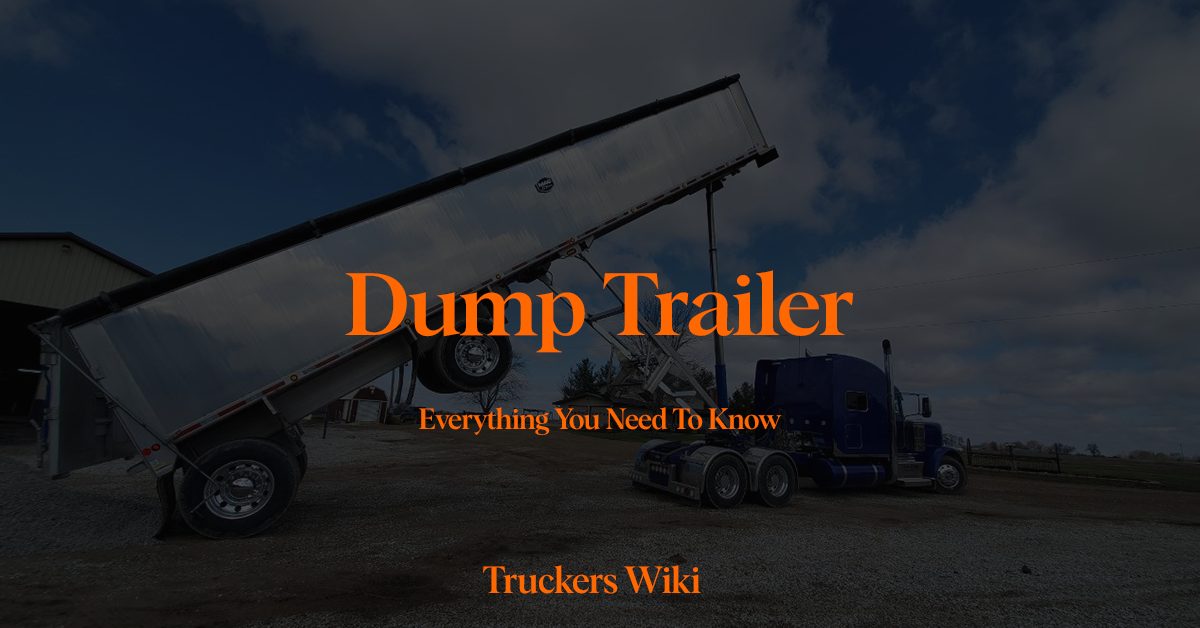
Table of Contents
What is a Dump Trailer
A dump trailer, an indispensable tool in construction, landscaping, and waste management industries, is specifically designed to haul and dump heavy loads. This article will discuss the design, types, uses, and requirements associated with operating a dump trailer.
Design of Dump Trailers
The defining feature of a dump trailer is its hydraulic lift system, which raises the trailer bed from the front, allowing the material to be ‘dumped’ out from the back. The trailer is typically constructed with robust materials, such as hardened steel or aluminum, to withstand heavy weights and rough materials often associated with construction and waste management tasks.
The size and capacity of a dump trailer can vary greatly. Smaller models may have a single axle and a capacity of just a few tons, suitable for small-scale landscaping or construction tasks. In contrast, larger models may have multiple axles and a capacity of dozens of tons, making them suitable for industrial-scale operations.
Types of Dump Trailers
There are several types of dump trailers, including:
- Rear Dump Trailers: The most common type, these trailers dump their load out of the back.
- Side Dump Trailers: These trailers can dump their load to the side, providing more stability and preventing tipping.
- Bottom Dump Trailers: Also known as belly dump trailers, these dump their load beneath the trailer, useful for spreading material in a line.
Each type has its own benefits and is suited to different types of tasks.
Uses of Dump Trailers
Dump trailers are incredibly versatile and can be used in various industries:
- Construction: They are essential for hauling construction materials like sand, gravel, or demolition waste.
- Landscaping: They’re used to transport large volumes of yard waste, soil, mulch, or other landscaping materials.
- Waste Management: Dump trailers are vital for transporting waste materials to recycling centers or landfills.
- Mining and Agriculture: They can be used for transporting mined materials or agricultural produce.
Operating Requirements
To operate a dump trailer, specific requirements must be met:
- Licensing: If the Gross Vehicle Weight Rating (GVWR) of the truck and trailer combined exceeds 26,001 pounds, the driver will need a Commercial Driver’s License (CDL).
- Training: Understanding how to load, operate, and unload a dump trailer safely is critical. Improper use can lead to accidents, damage, or tipping.
- Inspections and Maintenance: Regular checks and maintenance of the trailer and its hydraulic system are necessary to ensure safe and efficient operation.
- Safety Measures: Ensuring proper weight distribution, securing the load, and practicing safe dumping (especially on uneven ground) are all important safety considerations.
Conclusion
In summary, dump trailers play a crucial role in many industries, allowing for efficient transportation and disposal of heavy materials. While their operation requires specific knowledge and adherence to safety procedures, their contribution to productivity and efficiency makes them an invaluable asset. As with all commercial driving operations, compliance with local and national regulations is critical.
To learn more about the types of trailers used in the trucking industry click here.
Check Maxim Inc’s post about dump trailers.

